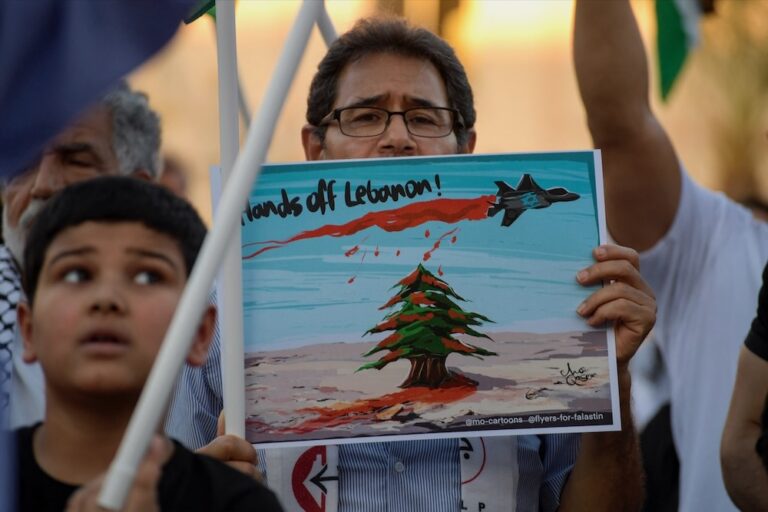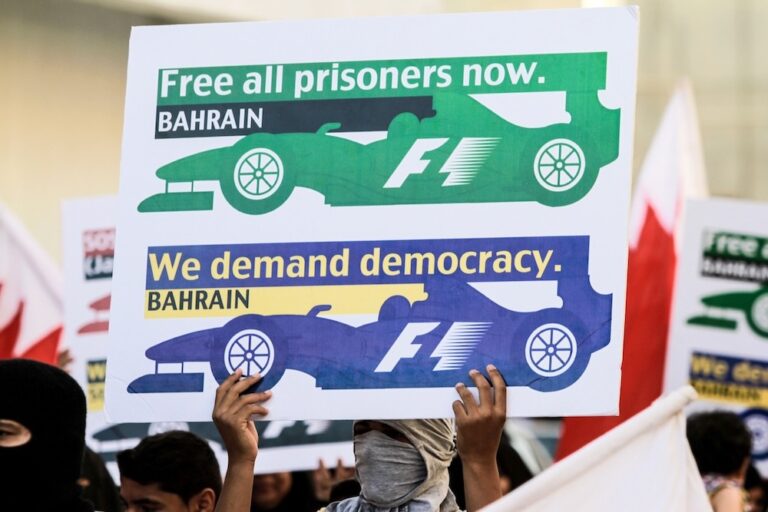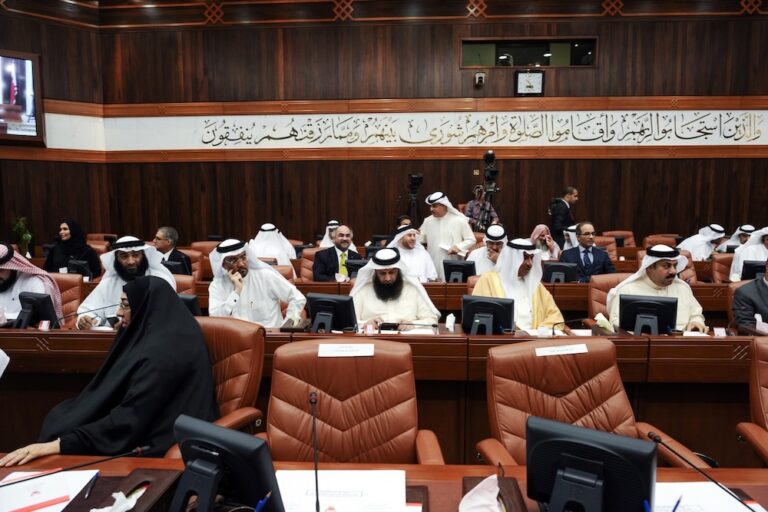A BBC Radio and Television team was prevented from conducting interviews and was subjected to intense security controls.
(BCHR/IFEX) – 17 January 2011 – The Bahrain Center for Human Rights (BCHR) expresses its concern over the Bahraini authorities’ continuing repression of representatives and correspondents of foreign newspapers and radio and television stations, as well as international news agencies, in an attempt to block news of what is taking place in Bahrain from being disseminated to the outside world. Recently this tendency was demonstrated via an attempt to prevent a BBC Radio and Television team from recording broadcasts and filming documentaries about Bahrain.
Upon the two correspondents’ arrival at Bahrain’s International Airport on 24 November 2010, they were taken aback as their cameras were confiscated by Customs. The airport personnel refused to return the equipment despite the correspondents’ repeated attempts to convince them that they had informed the embassy of their intention to visit Bahrain and that embassy staff had not given any indication that they objected.
On 25 November, which coincides with the third hearing in the trial of what is known as the “organizational network”, the correspondents were prohibited from entering the courtroom despite a government declaration that the trial is public. The Department of Foreign Media attempted to draw the BBC journalists away from the court area by inviting them to a meeting taking place at the same time as the trial. The correspondents, however, refused to go and decided to stay outside the court building, where the families of activists and human rights defenders had gathered. While they were recording and filming interviews with the families of the detainees, using equipment they had temporarily borrowed, security personnel intervened to prevent them from completing the interviews, and attempted to confiscate their footage and recordings. The correspondents, however, refused to obey their orders.
Throughout the week in which they were in Bahrain, the two journalists were followed and subjected to severe and intense security control. They were even followed inside restaurants, coffee shops and shopping malls.
On 29 November, the journalists were summoned by Sheikh Abdullah bin Ahmed Al-Khalifa (a member of the ruling family), head of the Department of Foreign Media at the Corporation of Information Affairs and former vice-president of the National Security Apparatus, and were asked o stop filming or conducting interviews, implying that legal consequences could be brought to bear if they persisted. The Bahraini authorities monopolise television broadcasting and private or independent political channels are not authorised. In September, the BBC broadcast a short documentary about the political situation in Bahrain and the tyrannical attack that led to the arrest of hundreds of activists and human rights defenders, among them activist Jaffar Al-Hisabi, who is both a British and Bahraini national.
The BCHR believes that the harassment of the BBC correspondents represents another attempt by the authorities to ensure that the outside world is unable to access accurate information about the daily violations of human rights that are taking place in Bahrain. This is happening at a time when local media outlets have been banned from discussing the news of the current trial of the alleged “organization network”.
The Department of Foreign Media, which is in charge of the ban, is only superficially affiliated with the Corporation of Information Affairs. In reality it overlaps and is associated with the National Security Apparatus with respect to the tasks to which it is assigned. The Department has been exerting significant pressure in the last few years on correspondents for foreign newspapers and news agencies, and has refused to issue permits to some of them, while also trying to impose correspondents that are closely allied with it on some of the foreign media outlets and news agencies. It has become difficult for correspondents to keep their jobs if the Department is unsatisfied with them. In February, the Department froze the permits of correspondents from French and German news agencies. In May, it also froze the activities of the Al-Jazeera News Channel in Bahrain, and banned its correspondents from entering the country.
According to information released by some international organisations concerned with monitoring freedom of the press, Bahrain’s ranking on indicators of freedom of opinion and expression has been declining. The country was categorized by Freedom House as being “not free”. Bahrain’s ranking also deteriorated according to Reporters Without Borders (RSF), with a placement of 144th out of 178 countries in the 2010 Press Freedom index. In comparison, it was ranked 63rd in 2003.
The restrictive approach of the Bahraini government is inconsistent with its position as a member of the Council of Human Rights and a party to the International Covenant on Civil and Political Rights. Article 19 of the Covenant states, “Everyone shall have the right to freedom of expression; this right shall include freedom to seek, receive and impart information and ideas of all kinds, regardless of frontiers, either orally, in writing or in print, in the form of art, or through any other media of his choice.”
Based on all the above, BCHR demands that the Bahraini authorities:
– allow journalists, correspondents and media workers to carry out their work in absolute freedom, without obstructing or restricting them,
– separate the affairs of information from the security forces and permit foreign newspapers and news agencies to freely cover the news,
– meet their commitments within the scope of the international charters and covenants that Bahrain has endorsed as regards freedom of the press and freedom of opinion and expression.


